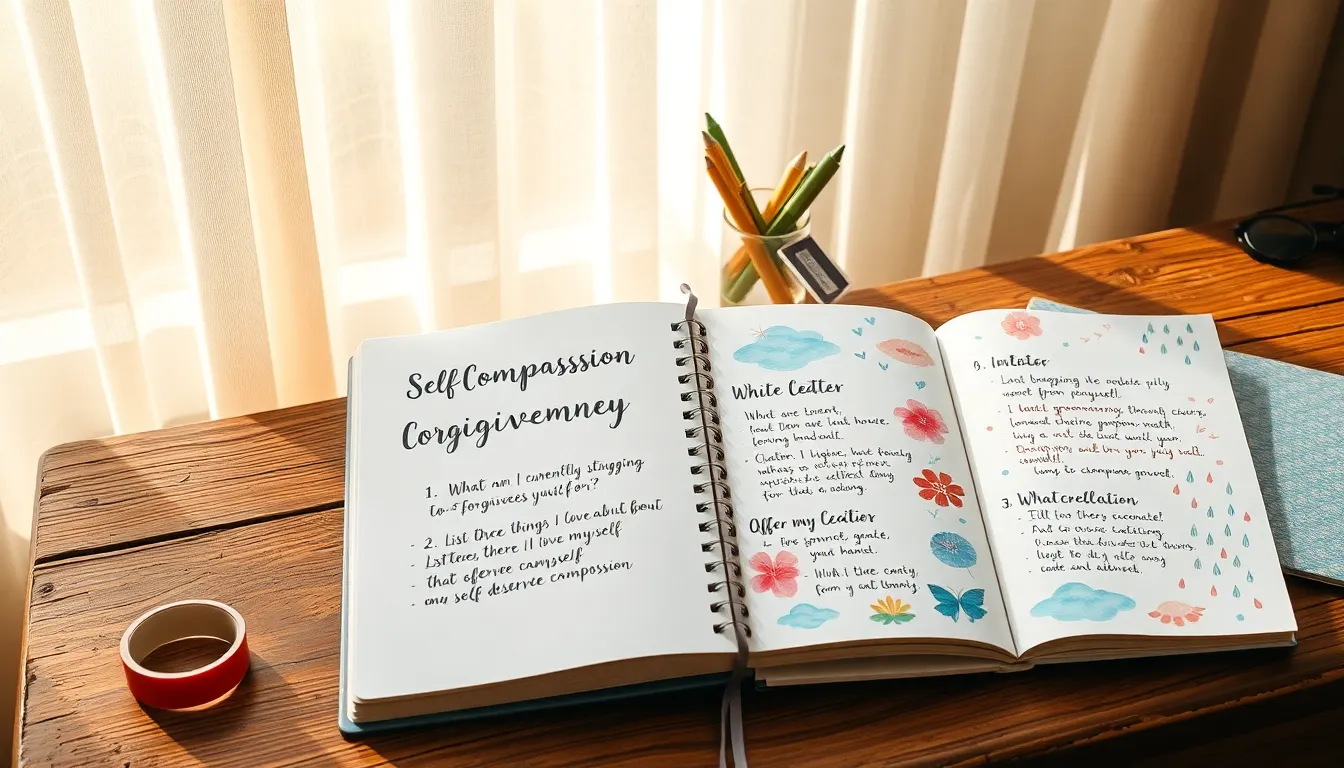In our fast-paced world, taking time for self-compassion and forgiveness can transform our inner dialogue. Journaling is a powerful tool, offering a gentle space to heal and grow.
Through this practice, you’ll discover the art of letting go and embracing kindness toward yourself. Unlock a path to peace and renewal with every written word.
Understanding Self-Compassion Through Journaling

Begin by reflecting on moments you were kind to yourself this week. Use journaling to deepen this practice by asking: “What would I say to a friend in my situation?” This shifts perspective and encourages gentle self-talk.
Another effective prompt is to list three things you appreciate about yourself. This builds a positive self-image and nurtures self-compassion. Consider using these prompts regularly to cultivate a kinder relationship with yourself.
Identifying Forgiveness Barriers in Writing

Recognize your resistance to forgiveness by writing about moments that trigger anger or hurt. Reflect on what holds you back from letting go—fear, pride, or misunderstanding?
Use targeted prompts to explore these barriers. Try writing:
- “What am I afraid of losing if I forgive?”
- “What benefits do I gain by holding onto this?”
Allow these insights to guide your path to compassion.
Crafting Compassionate Journal Prompts

Embrace self-compassion by journaling with kindness and understanding. Start with prompts like: “What do I need to hear today to feel supported?” and “How can I be more patient with myself?”
Focus on forgiveness through reflection. Use prompts such as: “What past mistake can I forgive myself for today?” and “What lesson did I learn from this experience?”
Transforming Self-Judgment to Kindness

Transform critical thoughts by writing them down, then rephrasing with kindness. This shift nurtures self-compassion.
Try prompts like:
- “How can I speak to myself as I would a dear friend?”
- “List three qualities you admire in yourself today.”
Reflecting on Personal Forgiveness Milestones

Reflect on moments you’ve forgiven yourself. Use a journal to capture these personal forgiveness milestones. Writing reinforces self-compassion and builds emotional resilience.
Try prompts like:
- “What did forgiving myself teach me about self-worth?”
- “How did I feel after letting go of guilt?”
These encourage deep self-reflection and growth.
Conclusion: Creating Beautiful Outdoor Spaces
Embracing self-compassion and forgiveness through journaling can transform your relationships by fostering deeper understanding and empathy. Throughout this journey, we’ve explored five key concepts: the importance of self-awareness in recognizing personal feelings, the power of empathy in understanding others’ perspectives, the role of vulnerability in building trust, the necessity of letting go of past grievances, and the commitment to continuous personal growth. These elements collectively nurture healthier, more fulfilling connections with yourself and others.
As your actionable next step, dedicate just five minutes today to start a journal entry. Reflect on a recent interaction and explore your feelings and thoughts with kindness and honesty. This simple practice can set the stage for profound personal insights and relational breakthroughs.
Don’t forget to save or bookmark this article for when you need a gentle reminder or a source of inspiration on your journey to relational success. By nurturing self-compassion and forgiveness, you are paving the way for thriving relationships that stand the test of time. With each page turned in your journal, you are one step closer to the harmonious relationships you desire and deserve.

